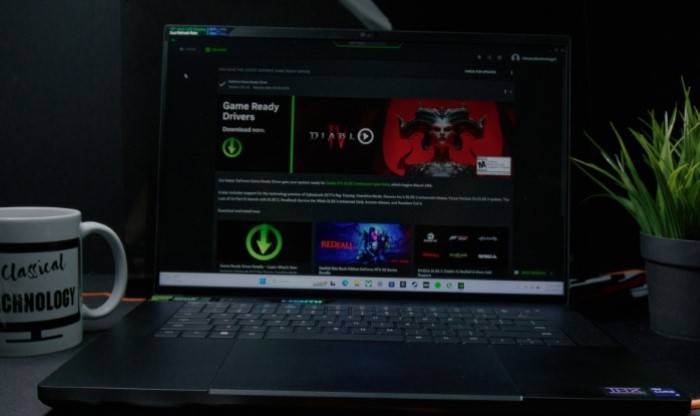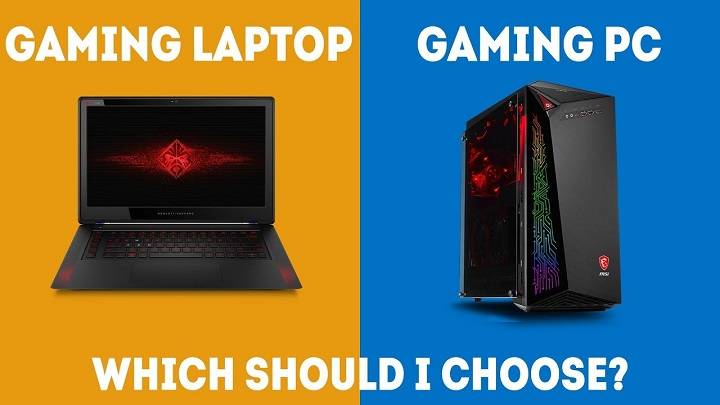In the realm of gaming, the eternal debate between gaming laptops and desktops continues to rage on. Both options offer unique advantages and drawbacks, catering to different preferences, needs, and lifestyles of gamers worldwide. Whether you’re a hardcore gamer seeking uncompromising performance or a casual player looking for portability, choosing between a gaming laptop and desktop requires careful consideration. Let’s delve deeper into this age-old clash and uncover the nuances that define each platform.
Performance

- Desktops: Known for their raw power and customization options, desktops reign supreme in terms of performance. With larger chassis and ample room for high-end components like powerful CPUs, GPUs, and cooling systems, desktops offer unparalleled gaming experiences. They handle intensive gaming sessions, resource-heavy tasks, and demanding applications with ease, delivering smooth gameplay and stunning visuals.
- Laptops: While gaming laptops may not match the sheer brute force of desktops, advancements in technology have narrowed the performance gap significantly. High-end gaming laptops equipped with dedicated graphics cards, fast processors, and ample RAM can deliver impressive gaming performance. However, thermal constraints and space limitations in laptop designs may impact sustained performance during prolonged gaming sessions.
Portability
- Desktops: Portability is where desktops falter. Their bulky form factor and fixed setup make them inherently immobile. Moving a desktop requires careful disassembly and reassembly, which can be cumbersome and time-consuming. Desktops are best suited for stationary gaming setups, making them ideal for dedicated gaming rooms or home offices.
- Laptops: Gaming laptops, on the other hand, offer unparalleled portability. Their compact, all-in-one design allows gamers to take their gaming experiences on the go. Whether you’re gaming at a friend’s house, attending a LAN party, or simply lounging on the couch, gaming laptops provide the flexibility to game wherever you desire. This mobility comes at the cost of some performance compromises, but for many gamers, the trade-off is worth it.
Customization and Upgradability

- Desktops: One of the biggest advantages of desktops is their inherent customizability and upgradability. Gamers can easily swap out components such as CPUs, GPUs, RAM, and storage drives to keep their systems up to date with the latest hardware advancements. This flexibility allows for future-proofing and fine-tuning to meet evolving gaming needs and preferences.
- Laptops: Gaming laptops, while offering some degree of customization and upgradability, are far more limited in comparison to desktops. Upgrading components like RAM and storage drives is usually feasible, but major upgrades such as swapping out the GPU or CPU are often restricted due to proprietary designs and compatibility issues. Gamers opting for laptops may find themselves locked into their initial hardware configuration for the lifespan of the device.
Price and Value
- Desktops: Traditionally, desktops have offered better value for money in terms of raw performance. Building a gaming desktop allows for cost-effective customization, enabling gamers to allocate their budget towards high-performance components that matter most to them. Additionally, desktop components tend to be more affordable and readily available compared to their laptop counterparts.
- Laptops: Gaming laptops, while convenient, often come with a premium price tag. The compact form factor and specialized components contribute to higher manufacturing costs, driving up the overall price of gaming laptops. While there are budget-friendly options available, they typically sacrifice performance or build quality. Gamers seeking top-tier performance may find that investing in a high-end gaming laptop requires a significant financial commitment.
Cooling and Thermal Management
- Desktops: With their spacious interiors and extensive cooling options, desktops excel in thermal management. Custom cooling solutions such as liquid cooling systems and multiple fans ensure optimal temperatures even under heavy loads. This superior thermal performance allows desktops to maintain peak performance for extended gaming sessions without the risk of overheating.
- Laptops: Cooling presents a significant challenge for gaming laptops due to their compact size and restricted airflow. While manufacturers implement various cooling solutions such as heat pipes, vapor chambers, and enhanced fan designs, thermal throttling remains a common issue during intense gaming sessions. Over time, dust accumulation and thermal degradation may further exacerbate cooling problems, impacting long-term performance and reliability.
Display and Ergonomics
- Desktops: Desktop setups offer greater flexibility in terms of display options and ergonomic customization. Gamers can choose from a wide range of monitor sizes, resolutions, refresh rates, and panel technologies to suit their preferences. Additionally, dedicated gaming peripherals such as mechanical keyboards, gaming mice, and ergonomic chairs enhance the overall gaming experience.
- Laptops: Gaming laptops feature integrated displays, limiting options for display customization. While advancements in laptop displays have led to higher resolutions, faster refresh rates, and adaptive sync technologies like G-Sync and FreeSync, the overall display experience may still fall short of dedicated gaming monitors. Furthermore, the compact keyboard and trackpad layout of laptops may not be as comfortable or conducive to extended gaming sessions compared to desktop peripherals.
In the eternal battle between gaming laptops and desktops, there is no clear winner. Each platform offers distinct advantages and drawbacks, catering to different gaming preferences, lifestyles, and budgets. Desktops boast unparalleled performance, customization, and value, making them the go-to choice for enthusiasts and competitive gamers. On the other hand, gaming laptops prioritize portability and convenience, allowing gamers to enjoy their favorite titles anytime, anywhere. Ultimately, the decision between a gaming laptop and desktop boils down to personal priorities and priorities. Whether you prioritize raw power, mobility, or a balance of both, choosing the right platform ensures an immersive and enjoyable gaming experience tailored to your needs.


